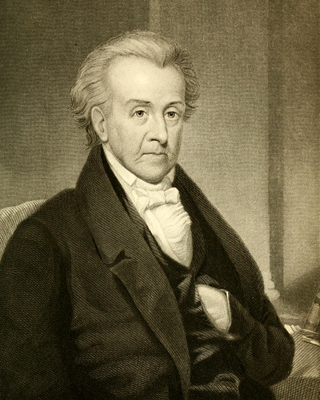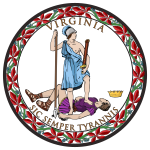
The 1804 United States presidential election was the fifth quadrennial presidential election, held from Friday, November 2, to Wednesday, December 5, 1804. Incumbent Democratic-Republican president Thomas Jefferson defeated Federalist Charles Cotesworth Pinckney of South Carolina. It was the first presidential election conducted following the ratification of the Twelfth Amendment to the United States Constitution, which reformed procedures for electing presidents and vice presidents.

The 1808 United States presidential election was the sixth quadrennial presidential election, held from Friday, November 4, to Wednesday, December 7, 1808. The Democratic-Republican candidate James Madison defeated Federalist candidate Charles Cotesworth Pinckney decisively.

The 1816 United States presidential election was the eighth quadrennial presidential election. It was held from November 1 to December 4, 1816. In the first election following the end of the War of 1812, Democratic-Republican candidate James Monroe defeated Federalist Rufus King. The election was the last in which the Federalist Party fielded a presidential candidate.

John Breckinridge was an American lawyer, slave-owning planter, soldier, and politician in Virginia and Kentucky. He served several terms each in both state's legislatures before legislators elected him to the U.S. Senate. He also served as United States Attorney General during the second term of President Thomas Jefferson. He is the progenitor of Kentucky's Breckinridge political family and the namesake of Breckinridge County, Kentucky.

The 1794–95 United States Senate elections were held on various dates in various states. As these U.S. Senate elections were prior to the ratification of the Seventeenth Amendment in 1913, senators were chosen by state legislatures. Senators were elected over a wide range of time throughout 1794 and 1795, and a seat may have been filled months late or remained vacant due to legislative deadlock. In these elections, terms were up for the senators in Class 3.

United States gubernatorial elections were held in 1800, in 11 states, concurrent with the House, Senate elections and presidential election.

The 1809 Massachusetts gubernatorial election was held on April 3, 1809.

The 1820 New Hampshire gubernatorial election was held on March 14, 1820.

The 1821 New Hampshire gubernatorial election was held on March 13, 1821.

The 1822 New Hampshire gubernatorial election was held on March 12, 1822.

The 1808 New Hampshire gubernatorial election was held on March 8, 1808.

The 1817 New Hampshire gubernatorial election was held on March 11, 1817.

The 1813 Connecticut gubernatorial election took place on April 12, 1813.

The 1815 Connecticut gubernatorial election took place on April 10, 1815.

The 1810 Connecticut gubernatorial election took place on April 9, 1810.

The 1811 Virginia gubernatorial special election was held on January 18, 1811, in order to elect the Governor of Virginia following the resignation of incumbent Governor John Tyler Sr. on January 15 after his appointed to a seat on the United States District Court for the District of Virginia by President James Madison. Former Democratic-Republican Governor of Virginia James Monroe defeated fellow Democratic-Republican nominee and former member of the Virginia House of Delegates George William Smith in a Virginia General Assembly vote.

The 1801 Virginia gubernatorial election was held on 30 November 1801 in order to elect the Governor of Virginia. Incumbent Democratic-Republican Governor of Virginia James Monroe won re-election in the Virginia General Assembly as he ran unopposed.

The 1800 Virginia gubernatorial election was held on 30 November 1800 in order to elect the Governor of Virginia. Incumbent Democratic-Republican Governor of Virginia James Monroe won re-election in the Virginia General Assembly as he ran unopposed.

The 1797 Virginia gubernatorial election was held on 30 November 1797 in order to elect the Governor of Virginia. Incumbent Federalist Governor of Virginia James Wood defeated incumbent Democratic-Republican member of the U.S. House of Representatives from Virginia's 12th district John Page in a Virginia General Assembly vote.

The 1794 Virginia gubernatorial election was held on 30 November 1794 in order to elect the Governor of Virginia. Incumbent Democratic-Republican member of the Virginia House of Delegates for Spotsylvania County Robert Brooke defeated incumbent Federalist member of Virginia's Executive Council James Wood in a Virginia General Assembly vote.
















